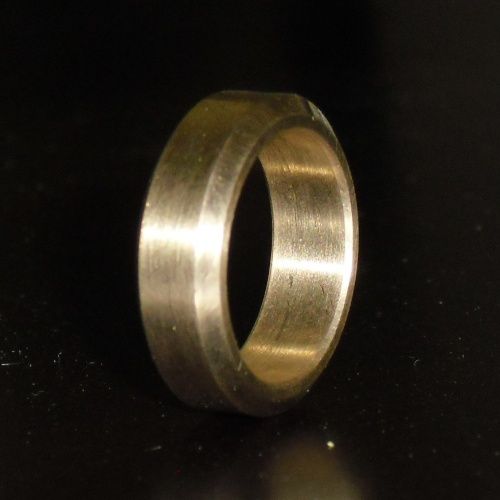First allow me to say that I'm not a metallurgist and know next to nothing about it, and that's why I've come here.
I'm looking for a non-corroding non-tarnishing inexpensive lustrous yellow metal alloy that could act as a cheap gold alternative, largely for decorative purposes.
The lionshare of its application will be decorative much like you'd see somewhere like Buckingham palace. Here's a virtual tour showing you what I'm talking about:
The next most prominent use will be furniture and then finally a few pieces of jewelry. They don't necessarily all need to be the same alloy, but most aside from the jewelry will be for indoor appplication. Much of it will likely need to be resistant to chlorine as there will be a pool nearby which I understand would destroy electroplating. There aren't really any plating methods that I've heard of personally that could even really take the kind of punishment furniture or a staircase would need to take without scratching or worse and revealing the metal underneath, which is why I'm asking about alloys.
Generally, I think polished brass seems like a good choice except for the fact that it both tarnishes and corrodes. I don't know if there's something it could be alloyed with to prevent that while retaining a similar appearance, or another alloy entirely, but that's why I'm here. Polished brass also looks nice since it has a bit of a more saturated color. The idea color would be something like so:

(most notably the center)
In all honesty, it doesn't even necessarily even need to be a metal. It could be some kind of synthetic material as long as the conditions are met.
Any ideas?
I'm looking for a non-corroding non-tarnishing inexpensive lustrous yellow metal alloy that could act as a cheap gold alternative, largely for decorative purposes.
The lionshare of its application will be decorative much like you'd see somewhere like Buckingham palace. Here's a virtual tour showing you what I'm talking about:
The next most prominent use will be furniture and then finally a few pieces of jewelry. They don't necessarily all need to be the same alloy, but most aside from the jewelry will be for indoor appplication. Much of it will likely need to be resistant to chlorine as there will be a pool nearby which I understand would destroy electroplating. There aren't really any plating methods that I've heard of personally that could even really take the kind of punishment furniture or a staircase would need to take without scratching or worse and revealing the metal underneath, which is why I'm asking about alloys.
Generally, I think polished brass seems like a good choice except for the fact that it both tarnishes and corrodes. I don't know if there's something it could be alloyed with to prevent that while retaining a similar appearance, or another alloy entirely, but that's why I'm here. Polished brass also looks nice since it has a bit of a more saturated color. The idea color would be something like so:

(most notably the center)
In all honesty, it doesn't even necessarily even need to be a metal. It could be some kind of synthetic material as long as the conditions are met.
Any ideas?

